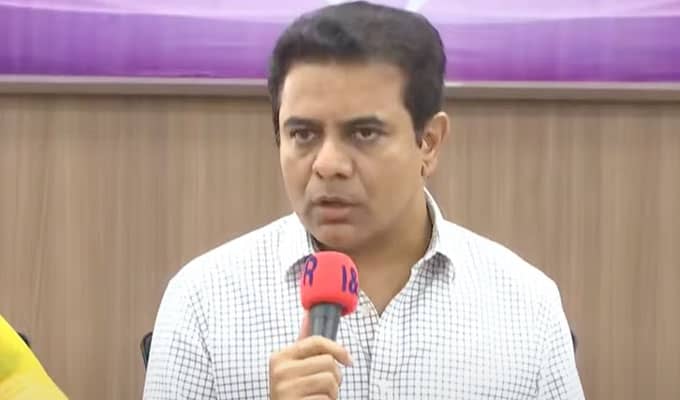Telanganapolitics:
By Kallepalli Siddharth, Journalist✍
Except for the Naxalbari movement, no mass movement in Telugu society has truly been led by the marginalized. Most were commandeered by elite groups for their own interests—and the Telangana movement was no exception. The recent commotion under the banner of the Telangana Vikas Samithi (TVS), driven by a few unemployed BRS-aligned writers, appears to follow the same pattern: it serves the agendas of political benefactors rather than the aspirations of the people.
During my student activism days, our organization held a national seminar on identity-based movements. One speaker remarked that in India, nationalism is often a proxy for Hindu nationalism. A similar trend is unfolding in Telangana now. As the BRS party finds itself in political decline, its leaders and supporters are attempting to weaponize Telangana sentiment as a last resort. There is a concerted effort to conflate Telangana identity with loyalty to BRS, KCR, or KTR. This manipulation is being executed through seemingly democratic faces, with TVS serving as an intellectual and literary extension of the party’s propaganda machine.
Instead of focusing on development, KTR has openly claimed that running YouTube channels is sufficient to return to power. BRS leaders are now prioritizing narrative warfare over public policy. While it’s their prerogative as politicians to do so, it is unfortunate that intellectuals and cultural figures—once seen as the conscience-keepers of society—are now lending themselves to such divisive tactics.
A recent roundtable conference organized by TVS on the theme Telangana: Identity, Challenges, and Responsibility featured 18 speakers—two MLCs, three former academy chairpersons, a former corporation chairman, and a former vice-chancellor. All were either appointed by KCR or are well-known loyalists of his regime. Apart from two or three exceptions, the rest are habitual sycophants of the former Chief Minister. Their attempt to rekindle sentiment in KCR’s favor by invoking Telangana identity is as transparent as it is distasteful.
It is disheartening to see respected figures like Nandini Sidda Reddy—who once penned stirring tributes to Telangana martyrs—now aligning with such regressive narratives merely because they lost positions of power. When political leaders try to portray Chandrababu Naidu as a threat to Telangana’s existence, we dismiss it as political fear-mongering. But when individuals considered intellectuals adopt the same alarmist tone, it signals a deeper malaise.
Some now claim that without Rajashekar Reddy, Telangana might have arrived sooner—ignoring the fact that no individual could have blocked a genuinely popular movement. To now allege that Chandrababu is plotting to merge Telangana back into Andhra Pradesh is not only far-fetched, but also irresponsible. It amounts to fearmongering and disinformation.
Take for instance a recent article by Andhra Jyothy MD Radha Krishna titled “Is Telangana BRS’s Fiefdom?”. If it merely critiqued a political party, why are self-styled Telangana ideologues reacting so defensively? If their claim is that the article attempts to undermine Telangana identity itself, then isn’t TVS’s counter-campaign essentially doing the same—using an editorial as a pretext to stoke unrest for political gain?
During the movement, we all agreed that while regions may separate, people must remain united. Today, as people begin to live together without regional bias, it is precisely this unity that threatens those invested in sowing discord. That, too, is a form of conspiracy.
We hoped that post-statehood, Telangana would foster a democratic spirit. Unfortunately, feudal values have persisted. While the Congress may not be immune to criticism, it has at least pledged to erase these vestiges. One such step was the removal of the Kakatiya arch from the official emblem—an act aimed at de-royalizing governance. Rather than welcome this symbolic move, certain groups are mourning the disappearance of a feudal symbol. One must ask: do these intellectuals stand with Adivasi icons Sammakka-Sarakka or their historical oppressors, the Kakatiyas?
Similarly, transforming Telangana Talli’s image from a feudal goddess to a representation of Bahujan motherhood is a welcome, inclusive gesture. Yet TVS appears perturbed. Why? Telangana has arrived. It is no longer a matter of speculation. To keep invoking separatist fears a decade after statehood reflects political insecurity, not genuine identity concerns.
If TVS genuinely upholds Telangana identity, their focus should be on advancing Bahujan representation and supporting policies like the 42% reservation granted to BCs under the current Congress-led government. Instead, many in TVS seem intent on reigniting regional sentiment to obscure discussions around equitable power-sharing.
The personal histories of TVS members support this suspicion. During the Telangana movement, many of them looked down on local dialects and culture. Even during the BRS’s decade-long rule, little was done for the growth of Telangana literature. Figures like Nandini Sidda Reddy and Deshapathi Srinivas, who once claimed “your Telugu is not our Telugu,” later presided over “Global Telugu Conferences” declaring the opposite—when it was politically convenient.
Institutions like the Telangana Sahitya Akademi and Sangeet Natak Akademi became mere salary disbursing bodies. These intellectuals remained silent during the people’s hardships but now, having lost favor, want to reinvent themselves as champions of Telangana development.
How far they’ve fallen. And for what? Mere positions?
To those who still believe supporting BRS is the essence of Telangana pride, let this be a wake-up call. Your ideas have grown as outdated as your leadership. Step aside. It is time for a new generation to take the mantle—not for the sake of a party or leader, but for the needs and aspirations of the people.
True Telangana identity lies not in divisive sentiment, but in dismantling those very conspiracies, and in exposing their perpetrators. That is the real Telangana movement.
